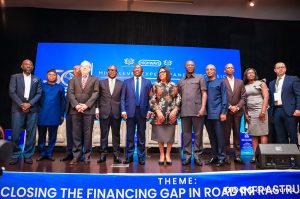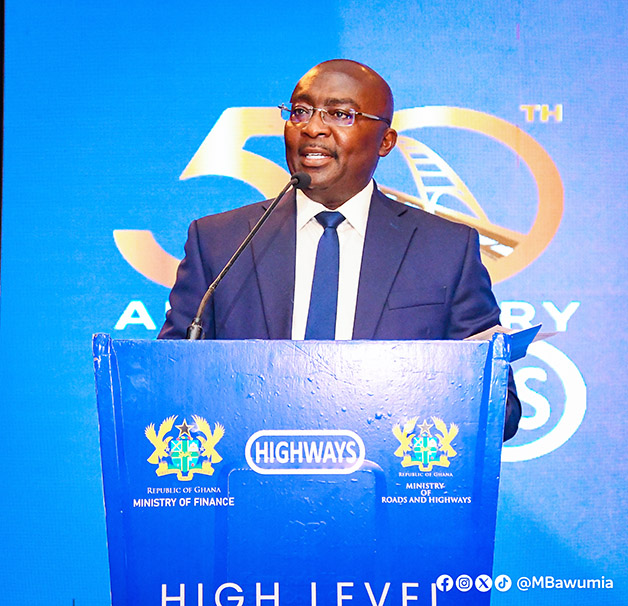The flagbearer of the ruling New Patriotic Party (NPP), Dr Mahamudu Bawumia, has proposed what he terms a radical reform of the road tolling system in Ghana.
By that proposal, Dr. Bawumia has opened a discussion on equity in the road tolling system in Ghana.
He argues that the current road tolling system favours people who live in plush areas, as their roads are not tolled.
Dr. Bawumia could not fathom the situation where people living in and around Kasoa and those in Tema and Ashaiman, for instance, should pay road tolls for the use of the motorway and the Kasoa stretch. However, those in Cantoments, Ridge and East Legon, which are considered expensive areas, enjoy some of the good roads but do not pay any tolls.
“I wish to propose a radical reform of the road tolling system in use. It appears we are tolling the poor and leaving the rich and affluent to enjoy. Persons who live in places such as East Legon, Cantonments, Ridge and Labone don’t pay any tolls, but they have some of the best roads in Ghana.

Meanwhile, people living in Kasoa, those who ply the motorway daily and others who pay tolls do not have these quality roads. I propose a major reform of the system, maybe a toll on a good all drivers and passengers use, irrespective of where they live, to address the concerns about equity and affordability,” he said.
Dr. Bawumia was speaking at the Ghana Highway Authority’s High Level Panel Discussion on the Financing Gap on Road Development held in Accra, on Wednesday, August 7, 2024.
He had challenged stakeholders in the road infrastructure provision system to critically evaluate the current financing models for financing road construction and explore ways to bridge the huge financing gap.
SOLUTION
Dr. Bawumia called for “realistic, frank and practical solutions,” noting that “closing the financing gap in road development was a collective task to achieve.
He said it requires collaboration, innovation and a shared commitment to sustainable development.
The Vice President was confident that by embracing these principles, Ghana can build a road network that supports our economic ambitions and enhances the quality of life for our citizens.
“Our government stands ready to lead this effort in working with all stakeholders to transform our infrastructure landscape. Together, we can pave the way for a brighter and more connected future,” he declared.
ESTIMATE
Dr. Bawumia stressed the need to find sustainable financing to maintain the over 94,000 km network of roads.
He cited estimates and said that Ghana needed 12 billion dollars to clear the road maintenance backlog and enable the network of about 94,203 km to be at an optimal level.
However, current funding levels only cover about 38% of this requirement, leaving a significant shortfall.
He explained that the gap translates into deteriorating road conditions, increased maintenance costs and missed economic opportunities.
“Globally, the situation is similar. The African Development Bank reports a continental infrastructure financing gap of between $68 billion and $108 billion annually. This staggering figure underscores the importance of innovative solutions and strategic partnerships,” he emphasized.
PPP
The Vice President indicated that public-private partnerships offer a viable solution to bridge the financing gap, noting that such arrangements have several potentials.
He said that fostering collaboration between the public sector and private investors could unlock new funding streams and leverage expertise in project implementation.
SUSTAINABLE
Vice President Bawumia stressed the importance of generating sustainable revenue streams for road development and maintenance.
He said that it was evident that the technical forum needed to discuss a major paradigm shift in road financing.
He proposed that some areas that could be considered included concessioning of high-volume roads over a period.
He explained that it could be done on major trunk roads like Accra-Kumasi, Accra-Cape Coast, and Accra-Akosombo, as well as new ring roads/ expressways around major urban centres.
“Congestion pricing, which aims to reduce the entry of low-capacity vehicles into central business districts and encourage the use of high-occupancy vehicles, is also another option,” he said.
CLASSIFICATION
The Minister for Roads and Highways, Francis Asenso-Boakye, disclosed that at the end of 2023, 44% of Ghana’s road network was classified as good, 34% as fair, and 22% as poor, as against the original target of 70% good, 20% fair, and not more than 10% in poor condition by the end of 2025.
“Obviously, it is quite evident that from where we are now, it will be quite an arduous task to be able to achieve the target,” he bemoaned.
He announced that, despite the many challenges, this government had added 12,830 kilometres of roads to the national network between 2017 and 2023.










